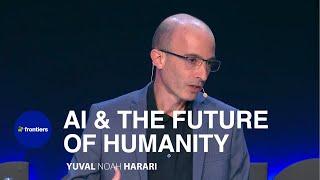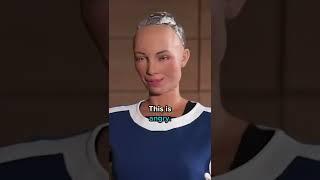Patreon: https://bit.ly/3v8OhY7
Joscha Bach is a computer scientist and artificial intelligence researcher currently working with Liquid AI. He has previously done research at Harvard, MIT, Intel, and the AI Foundation. In this episode, Joscha and Robinson discuss the nature of consciousness—both in humans and synthetic—various theories of consciousness like panpsychism, physicalism, dualism, and Roger Penrose’s, the distinction between intelligence and artificial intelligence, the next developments of ChatGPT and other LLMs, OpenAI, and whether advances in AI will spell the end of humankind.
Joscha’s X: https://x.com/Plinz
OUTLINE
00:00 Introduction
03:33 Why are Legos Like Computer Programs?
11:17 Using Computer Science to Understand Reality
19:14 Is Reality a Simulation?
26:20 Does Roger Penrose’s Theory of Consciousness Make Sense?
35:15 Could Dualism Explain the Human Mind?
41:03 What’s Wrong with Panpsychism?
52:59 What Is Intelligence?
58:22 What Defines the Current Wave of AI?
01:08:18 Does ChatGPT Mirror the Human Mind?
01:18:43 Will ChatGPT Become Smarter than Humans?
01:27:58 Will ChatGPT Philosophize Better than Philosophers?
01:39:16 Shoulder We Fear AI?
01:49:47 What’s More Dangerous: The Internet or AI?
01:54:20 Could AI Take Over the Planet?
01:59:22 Will AI Make Human Artists Obsolete?
02:11:28 Could AI Solve Climate Change?
Robinson’s Website: http://robinsonerhardt.com
Robinson Erhardt researches symbolic logic and the foundations of mathematics at Stanford University. Join him in conversations with philosophers, scientists, and everyone in-between.
Joscha Bach is a computer scientist and artificial intelligence researcher currently working with Liquid AI. He has previously done research at Harvard, MIT, Intel, and the AI Foundation. In this episode, Joscha and Robinson discuss the nature of consciousness—both in humans and synthetic—various theories of consciousness like panpsychism, physicalism, dualism, and Roger Penrose’s, the distinction between intelligence and artificial intelligence, the next developments of ChatGPT and other LLMs, OpenAI, and whether advances in AI will spell the end of humankind.
Joscha’s X: https://x.com/Plinz
OUTLINE
00:00 Introduction
03:33 Why are Legos Like Computer Programs?
11:17 Using Computer Science to Understand Reality
19:14 Is Reality a Simulation?
26:20 Does Roger Penrose’s Theory of Consciousness Make Sense?
35:15 Could Dualism Explain the Human Mind?
41:03 What’s Wrong with Panpsychism?
52:59 What Is Intelligence?
58:22 What Defines the Current Wave of AI?
01:08:18 Does ChatGPT Mirror the Human Mind?
01:18:43 Will ChatGPT Become Smarter than Humans?
01:27:58 Will ChatGPT Philosophize Better than Philosophers?
01:39:16 Shoulder We Fear AI?
01:49:47 What’s More Dangerous: The Internet or AI?
01:54:20 Could AI Take Over the Planet?
01:59:22 Will AI Make Human Artists Obsolete?
02:11:28 Could AI Solve Climate Change?
Robinson’s Website: http://robinsonerhardt.com
Robinson Erhardt researches symbolic logic and the foundations of mathematics at Stanford University. Join him in conversations with philosophers, scientists, and everyone in-between.












Comments